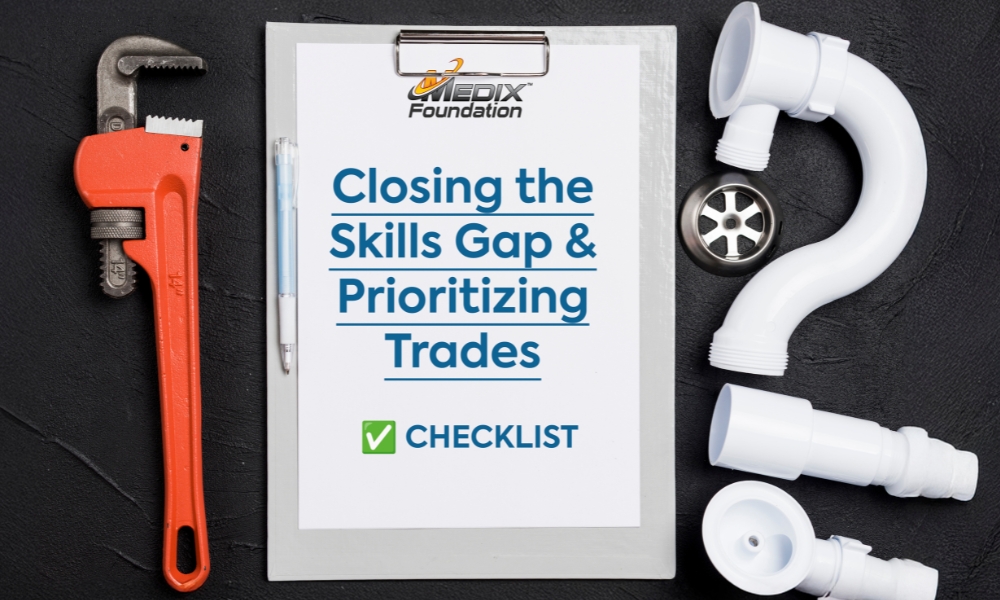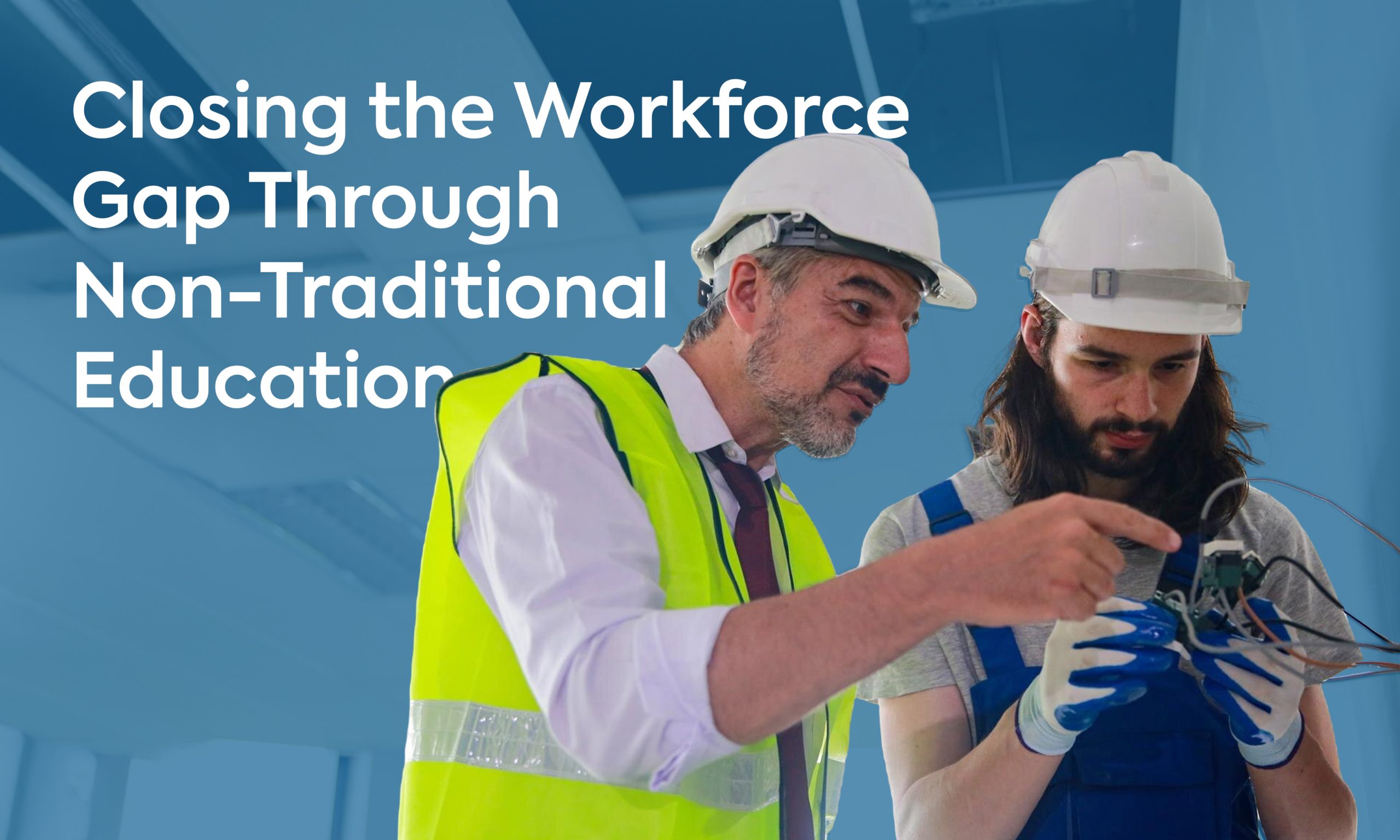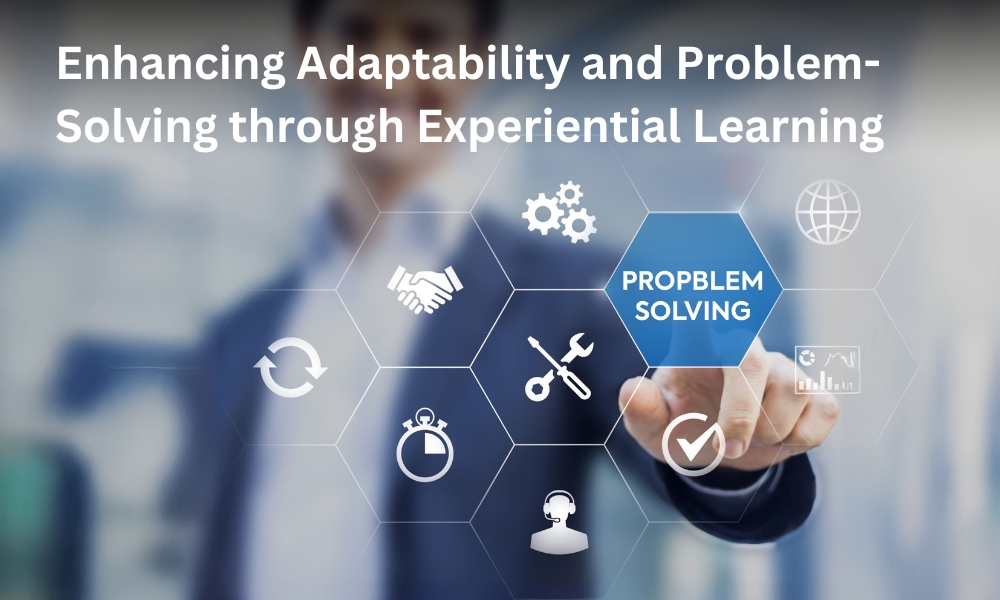Building Tomorrow’s Workforce, Today
Our Partners:
Driving Change Together
The Trade Gap in Numbers
1 million
the shortage of skilled trades workers by 2030
550,000
the shortage of plumbers
by 2027
450,000
the shortage of workers in the construction industry by 2025
83%
of construction and trade job businesses are short on workers
80%
of all general contractors need help filling some or all positions.
72%
of general contractors are concerned about an insufficient workforce
70%
of electrical contractors say the industry is facing an electrician shortage
60%
of HVAC businesses struggle to find adequately trained technicians
The Labor Shortage
Amplification Effect

An Innovative Approach to Close the Gap
Paid, Hands-On
Training
We provide immersive, practical training programs that equip individuals with the real-world skills they need to excel in their trades. By partnering experienced service providers around the country, we provide hands-on paid experience across all the major commercial trades.
Cutting-Edge
Technology
Using the latest advancements in technology and advanced AI algorithms, we match aspiring tradesmen and tradeswomen with the ideal mentor based on their interests and geography, as well as communication and learning styles.
Business Skills
Development
Unlike most programs, the Medix Foundation goes beyond teaching specific trade skills. We equip future tradesmen and women with essential business skills, giving them the tools to not just excel in their trade, but in business as well.
Community Engagement and Partnerships
We actively collaborate with businesses and trade organizations to build a robust support network. This approach helps us to create opportunities for apprenticeships, job placements, and ongoing career development, ensuring those who complete our program transition smoothly into the workforce.
“The growing shortage of skilled trade professionals presents a critical challenge that will affect all industries, the economy, our infrastructure, & society. I approach this issue with an all-encompassing, holistic viewpoint, aiming to invert the negative stigma surrounding the trades profession. By educating this upcoming generation on the economic potential within the aforementioned fields, we can address this upcoming challenge and ensure that the preservation and development of our infrastructure trends on a upward trajectory.”

Meet Vince Kiel: Founder of the Medix Foundation
Vince Kiel, a serial entrepreneur and pioneer in the commercial trades industry, has positioned himself as a leader with an extensive portfolio of companies spanning facility management, construction, and residential and commercial real estate. His transformative journey from a grassroots origin to industry trailblazer reflects his unparalleled dedication to revolutionizing the landscape of the sector over a career that spans more than a decade.
Embracing an unconventional path early in his career, Vince opted for hands-on experience over traditional higher education. He founded his first company at just 15 years old, laying the foundation for what would become a successful career that now encompasses over 30 organizations.
News & Insights

Closing the Skills Gap: Prioritizing Trades is Essential for Future-Proofing the Workforce
In today’s rapidly evolving economy, the demand for skilled workers in the commercial trades has never been more pronounced. From construction and plumbing to electrical work and HVAC systems, these industries form the backbone of infrastructure development and maintenance across the United States. In 2023, the construction industry alone contributed approximately 4.4% to the U.S. GDP, amounting to nearly $1.2 trillion. This massive economic role underscores the importance of a skilled trade workforce capable of

Non-Traditional Pathways in Education and Their Role in Closing the Workforce Gap
Today’s evolving job market demands flexible, skills-based education that transcends traditional degrees. Nontraditional pathways like apprenticeships, vocational training, and online certifications not only equip individuals with job-ready skills but also expand access and encourage workforce inclusivity. A nontraditional education pathway breaks from conventional degree programs and emphasizing flexibility, skill application, and accessibility. These pathways, such as apprenticeships, boot camps, and online certifications, ..

Harnessing Experiential Education for to Enhance Adaptability and Problem-Solving Skills
In today’s rapidly evolving world, the landscape of education is shifting towards preparing students not just for knowledge retention, but for adaptability, creativity, and leadership in dynamic environments. Experiential learning emerges as a beacon of innovation, offering profound benefits that transcend traditional classroom settings. By immersing learners in hands-on, real-world experiences, experiential learning catalyzes personal growth and equips individuals with the skills needed to thrive in the complexities of the modern era.